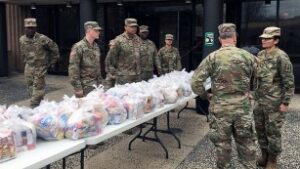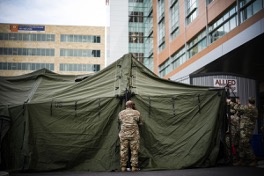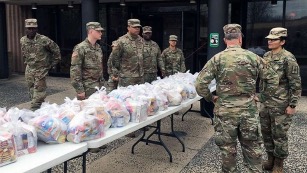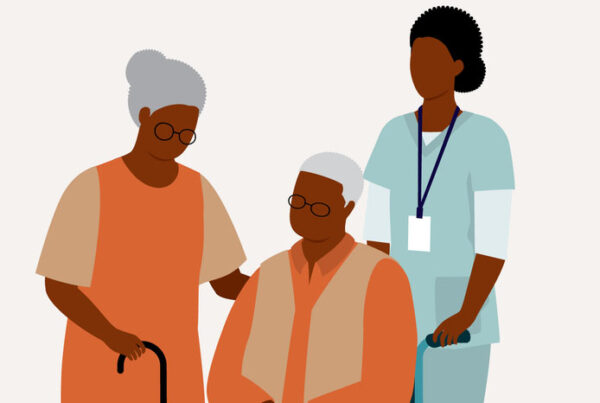The last few weeks have seen frequently changing guidelines and updated information regarding how to keep ourselves safe during the COVID-19 pandemic. While we are all taking precautionary measures to stay healthy, it can seem like life is on hold during the coronavirus. You may be working from home, quarantining, social distancing, occupying young children at home, or making less frequent trips in your community. Despite the damper that this can put on your everyday life, there are still ways to safely be of help to your community during this time.

How to Get Involved
Volunteer
Feeding America and Meals on Wheels are looking for volunteers to help pack and organize groceries at food banks across the country. This is a great way to assist at-risk populations who may be quarantined, or young children who depend on school meals. If you want to help but are unable to offer your time, you can make monetary donations to support these organizations.
Donate Blood
The U.S. Surgeon General Jerome Adams is encouraging healthy Americans to donate blood at this time, saying that “social distancing doesn’t mean social disengagement”. Many blood drives have been cancelled which leads to an increased need for donations. Visit the American Red Cross to find a drive near you or to make an appointment at a collection center. Adams reassures citizens that blood donations are safe and that collection centers are following precautions provided by the Centers for Disease Control and Prevention.
Be Mindful and Stay Informed
States are enacting different protocols at this time to keep people safe from COVID-19 and also to reduce the burden on our healthcare system. Stay up to date on what your state recommends by visiting the CDC’s website or your state’s public health department’s website.
Social distancing is uniformly recommended to prevent the spread of the disease. Some basic guidelines to follow are gathering with no more than 10 people at one time, keeping a social distance of 6 feet, staying home when you are sick, and limiting contact with at-risk populations, such as elderly adults.
For Service Members & Their Families
For essential military personnel, life may still be going at full pace. The United Services Organization is still supporting service members and their families at home and abroad. Being restricted to quarantine on base can be a huge blow to morale.
Read about how the USO is helping to keep spirits up among military families in “5 Ways the USO is Still Supporting Service Members During the Coronavirus Pandemic”.

Members of the Maryland Army National Guard set up a triage tent in Silver Spring, Maryland, on March 19, 2020. Drew Angerer/Getty Images
Members of the National Guard are deploying in states like New York and Maryland to offer assistance. If you have a loved one in the National Guard, this situation can take a toll on both of you. Offer moral support by understanding that they are working long hours in less than ideal situations to provide food to children, help with testing, and keep communities safe to optimize conditions for other essential workers. If the National Guard is in your community, cooperating with them during this time is a small act that can really go a long way.
Keep yourself and your family informed by checking out the resources at Military One Source, and by checking the Department of Defense for updates.













